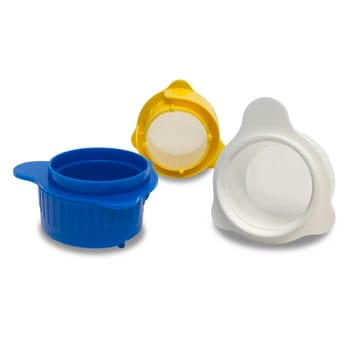CLS431751
Corning® cell strainer
pore size 70 μm, white, sterile, pkg of (individually wrapped), pack of 50 ea, Corning 431751
Szinonimák:
Cell Strainer
About This Item
Javasolt termékek
material
Nylon
white
sterilitás
sterile
kiszerelés
pack of 50 ea
pkg of (individually wrapped)
gyártó/kereskedő neve
Corning 431751
pórusméret
70 μm
Looking for similar products? Látogasson el ide Útmutató a termékösszehasonlításhoz
Általános leírás
Alkalmazás
- Single cell suspensions of blood cells from marrow, pancreas, thymus, tonsil, and lymph nodes
- Stem cells, tissue-derived cells, and cancer cells
- Preparation of specimens for primary cell cultures and immunogens
- Preparation of freezing stocks
- Filtering agglutinative proteins produced in inactivation serum
Tulajdonságok és előnyök
- Strong nylon mesh with 70- micron pores for optimal performance in a variety of applications
- Evenly spaced mesh pores providing consistent and reliable results
- Conveniently accessible in individual packaging
- Extended lip on strainer enables aseptic handling with forceps
- Molded color-coded polypropylene frame with tab enables easy handling and identification
- Fits all major brands of 50mL conical tubes
- Disposable, easy-to-use, inexpensive, maintains sample integrity
- Sterilized by γ−irradiation, noncytotoxic
Jogi információk
Analitikai tanúsítványok (COA)
Analitikai tanúsítványok (COA) keresése a termék sarzs-/tételszámának megadásával. A sarzs- és tételszámok a termék címkéjén találhatók, a „Lot” vagy „Batch” szavak után.
Már rendelkezik ezzel a termékkel?
Az Ön által nemrégiben megvásárolt termékekre vonatkozó dokumentumokat a Dokumentumtárban találja.
Az ügyfelek ezeket is megtekintették
Cikkek
Development of a novel serum-free and xeno-free human mesenchymal stem cell (MSC) osteocyte differentiation media.
Organoid culture products to generate tissue and stem cell derived 3D brain, intestinal, gut, lung and cancer tumor organoid models.
Protocols
Information about mesenchyme, specifically mesenchymal stem cell procotols. Step-by-step cell culture protocols for mesenchymal stem cell (MSC) isolation, expansion and differentiation.
Tudóscsoportunk valamennyi kutatási területen rendelkezik tapasztalattal, beleértve az élettudományt, az anyagtudományt, a kémiai szintézist, a kromatográfiát, az analitikát és még sok más területet.
Lépjen kapcsolatba a szaktanácsadással









